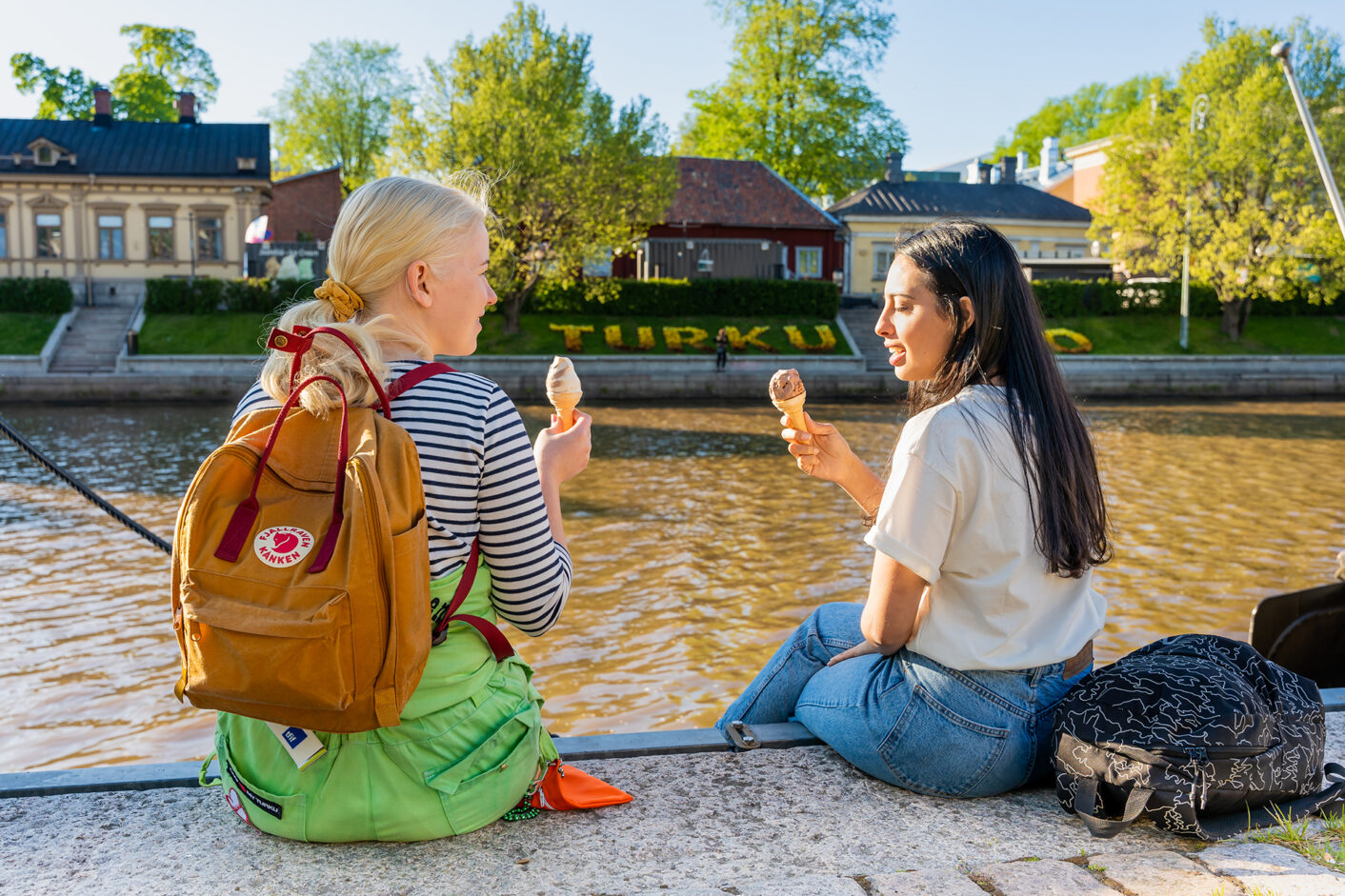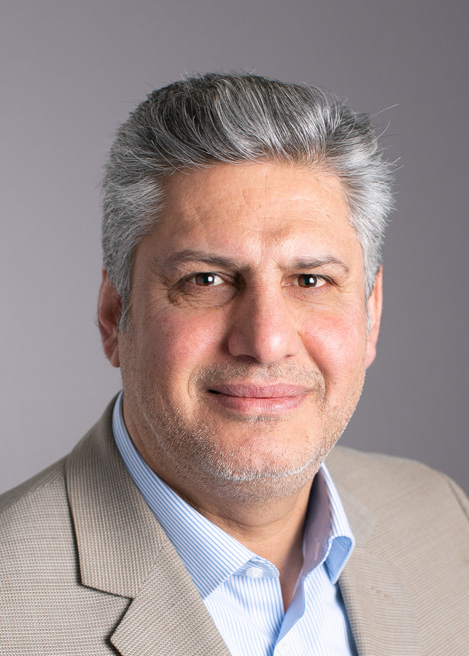Energy and Environmental Engineering, Bachelor of Engineering
World’s energy use needs to be reconsidered at a fast pace. The Bachelor’s degree in Energy and Environmental Engineering gives you the opportunity to do meaningful work in curbing climate change, in the field of renewable energy now and in the future.

Degree title
Bachelor of Engineering
Scope and duration
Tuition fees
11 500 € for non EU / EEA citizens
Read more
Type of studies
Location
Teaching language
Engineering expertise responds to the energy transition
Humanity is at a crossroads in which the world’s energy use needs to be reconsidered at a fast pace: it needs to be based more on renewable energy sources and technical solutions which are increasingly based on electricity. Renewable forms of energy production and the technical competence required by them play an increasingly central role in the development of both societies and the corporate world.
The degree programme in Energy and Environmental Technology will provide you with a degree which yields the opportunity to do meaningful work in curbing climate change, in the field of renewable energy now and in the future.
The global shift in the field of energy, the downright energy crisis, the need for developing technical solutions targeted at environmental challenges and the good prospects of Southwest Finland attract young people to study energy and environmental technology at Turku University of Applied Sciences.
During your studies you develop skills and knowledge with which you will learn to understand the challenges and opportunities involved in energy production, storage, distribution, use and energy efficiency. You develop your abilities to produce tangible solutions to issues related to the following topics, for example:
- distributed renewable energy production, wind and solar power,
- different energy systems based on renewable energies, and
- energy transfer and storage technologies.
Study contents
The scope of the Bachelor of Engineering degree is 240 ECTS credits. The curriculum consists of basic, professional and elective studies, practical training and Bachelor’s thesis.
The education is based on natural sciences: mathematics and physics, core studies in engineering, language and communications studies and basics in project studies. These topics will be covered in particular in the first two years of studies.
The professional studies in renewable energy are placed throughout the entire study path, similarly to elective studies. In the professional studies, you will focus on the efficient production, transfer, storage, distribution and use of energy. The studies mainly focus on future solutions which are distributed and related to smart production, storage and consumption. You also can deepen your competence by working in research and development projects in the field, in the research group in New Energy.
Practical training is mostly completed between academic years, mainly in the summertime. The thesis is completed in the fourth year of studies.
The degree programme is conducted as full-time studies, which means that studying requires participation in classes on campus and cannot be completed as online studies.
If you have fluency in Finnish you can also study the Bachelor’s degree in Energy and Environmental Engineering in Finnish. Read more on our Finnish website.
After graduating
Engineering competence in energy and environmental technology are in high demand, and the career opportunities are excellent. The degree programme’s strong core studies and professional studies in New Energy, together with the new laboratories and strong research and development activities of the degree programme, enable placement in very versatile companies and tasks.
Typical tasks can be found in consulting firms, industrial companies, energy plants and in production and technical trade tasks. Along with experience, the career opportunities will become more versatile into demanding expert tasks and supervisor and management tasks.
Checklist for applicants
Applying in Joint Application
Joint application means that you can apply to up to six study programmes with one application form. These six options may include degree programmes from one or several different higher education institutions in Finland.
Checklist before you apply
1
Check the admission criteria: please take a close look the general information on eligibility, application procedure and student selection methods.
2
Take a look at the tuition fees and scholarships: the higher education institutions in Finland collect tuition fees from students outside the EU/EEA area.
Please note also: The Ministry of education and culture is preparing changes in legislation considering application fees for applicants to degree programmes in higher education. Read more about the preparations to introduce application fees.
3
Look at the schedules: make sure to apply and upload attachments on time.
Instructions for joint application: admission criteria and schedules
Apply in Joint Application
You can apply for this degree programme in joint application.
Next joint application period is:
The deadline for application is at 3 pm (Finnish time) on the last day of the application period.
Application forms at Studyinfo
Studyinfo.fi is the national portal for submitting applications.
How many students are selected in this degree programme?
You can find the number of study places offered in joint application to this degree programme, and path studies in the programme, on Studyinfo.fi on the degree programme’s page. The number of study places varies from year to year.
In joint application the quota for first-time applicants in this degree programme is 90%, which means that the majority of study places are reserved for applicants applying for their first higher education degree.
In path studies there is no quota for first-time applicants. Path studies might be a good fit for you especially if you have already accepted a study place at a higher education institution.
How does studying in path studies differ from
degree studies?
In the joint application process, applicants apply to study for a degree. In path studies, studies begin as an Open UAS student.
Open UAS path studies are an alternative route to a degree. In path studies, you can get started with studies included in the degree. Path studies consist of the first-year studies (60 ECTS) of a Bachelor’s degree, which you complete alongside degree students. The actual studies or the contents of the studies do not differ from 1st year degree studies.
You cannot complete a degree as a path student. Based on the credits you attain and your success in path studies, you can apply for a degree study right via Open UAS separate application and continue your studies seamlessly until graduation.
Path studies are subject to an Open UAS study fee. There is also a difference in the benefits of a path student compared to degree students.
Apart from online study programmes, path studies require attendance in Turku, Finland.
Please note that as path studies do not lead to a degree, Finnish immigration services are not likely to grant a residence permit for path studies.
Co-operation with educational agents
Turku UAS co-operates with education agencies specialized in international student recruitment.
Separate applications
You can apply to Turku UAS also through separate applications. Application periods and student selection methods are different from joint application procedure.
Tuition fee
Tuition fees are charged from students who are not citizens of EU/EEA countries and are accepted to English conducted Bachelor’s or Master’s degree programmes. Read more about the tuition fee.
When are studies starting?
If you apply in the spring application periods (first and second joint application and path studies application), the studies begin in August /September.
If you apply in the autumn application periods (autumn joint application and path studies application), the studies begin in January.
The starting dates and other information for new students will be published on the New Students guide.
Contact Us
Questions related to admissions: Admission Services
We co-operate with agencies specialized in international student recruitment. See the list of our verified educational partners and agents.
Questions related to studies:
Studying Energy and Environmental Engineering at Turku UAS
Choosing to study in Turku UAS gives an hands on experience on engineering sciences. We are very committed to work on for sustainable future.
Starting your studies?
Welcome to Turku University of Applied Sciences! Turku UAS is one the leading universities of applied sciences in Finland, home to over 12,000 Finnish and international students. It’s great to have you as part of our community.
Our New Students’ Guide gathers all the information you need to prepare for your arrival in Finland and to get started with your studies. Please read the instructions carefully.
See you on campus or online!
Turku: a Student city
Turku, located in the region of Southwest Finland, is one of Finland’s biggest cities. The bustling lifestyle structure and top class education, culture, and services, as well as the beautiful archipelago, make for a magnetic combination in Turku.


